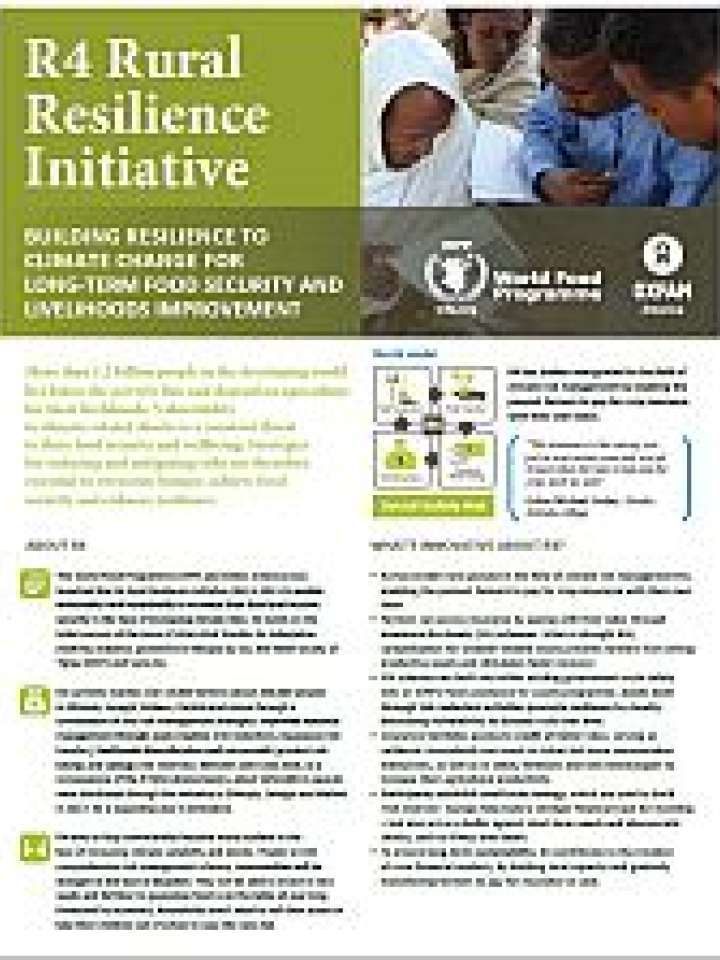The R4 Rural Resilience Initiative
This document highlights WFP's R4 Rural Resilience Initiative (R4), a comprehensive risk management approach to help communities be more resilient to climate variability and shocks. Currently active in Senegal and Ethiopia, WFP is also piloting the initiative in Malawi and Zambia.
WFP and Oxfam America (OA) launched the R4 Rural Resilience Initiative (R4) in 2011 to enable vulnerable rural households to increase their food and income security in the face of increasing climate risks. R4 builds on the initial success of the Horn of Africa Risk Transfer for Adaptation (HARITA) initiative, pioneered in Ethiopia by Oxfam America, the Relief Society of Tigray (REST) and Swiss Re.
More than 2.3 billion people live with less than USD$1.25 a day and depend on agriculture for their livelihoods. Vulnerability to climate-related shocks is a constant threat to their food security and wellbeing. As climate change increases the frequency and intensity of these shocks, the challenges faced by food insecure farmers also increase. WFP is developing innovative tools and strategies to reduce and mitigate risks to overcome hunger, achieve food security and enhance resilience.
Explore further
